detail profile helmut griem
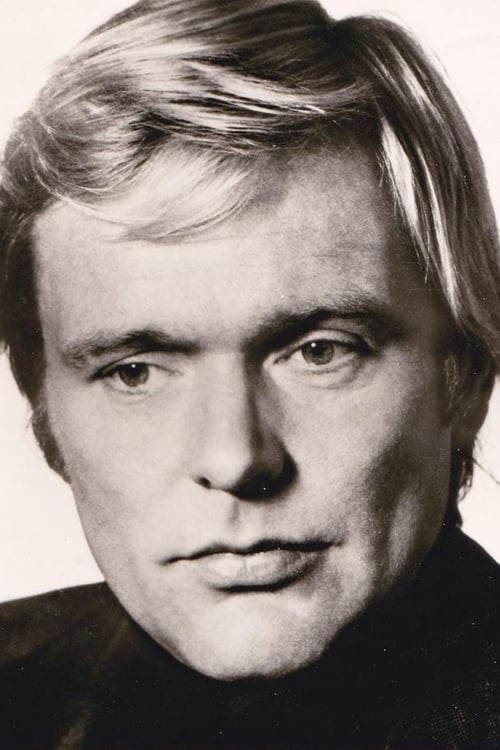
Riwayat Hidup
From Wikipedia, the free encyclopedia
Helmut Griem (born April 6, 1932 in Hamburg – November 19, 2004 in Munich) was a German actor.
Griem was primarily a German-speaking stage actor, appearing at the Thalia Theater in Hamburg, the Deutsches Schauspielhaus in Hamburg, the Burgtheater in Vienna, the Staatliches Schauspielbühnen in Berlin, in the Munich Kammerspiele, and finally in the Staatstheater am Gärtnerplatz, also in Munich.
Among his many film and TV appearances (a quite memorable one being NBC's mini-series Peter the Great, portraying the formidable Tsar's lifelong friend and "right hand" Alexander Menshikov, alongside Maximilian Schell), the Oscar-winning film Cabaret (1972), in which he played the rich "Baron Maximilian von Heune" is probably the best-known; other internationally-known performances include his work in The Damned, The McKenzie Break, and Ludwig.
Griem starred in the television mini-series "The Devil's Lieutenant" directed by John Goldschmidt, adapted by Jack Rosenthal and based on the novel by M Fagyas, for Channel 4 and ZDF.
Despite his success in film, the theatre remained at the heart of Griem's work, and he performed in many classic roles from both the German and English-language repertoire.
Later in his career Griem turned to theatre direction, including Long Day's Journey Into Night by Eugene O'Neill.
Before his death, Griem had planned to direct the Botho Strauss play Die eine and die andere (This One and The Other).
Griem twice won the Bambi Award: in 1961 and in 1976.
Description above from the Wikipedia article Helmut Griem, licensed under CC-BY-SA, full list of contributors on Wikipedia.
Info Pribadi
Peran Yang Di Mainkan Helmut Griem
 The young sickly girl Bernadette comes...
The young sickly girl Bernadette comes...Lourdes 2000
The young, sickly girl Bernadette comes from a poverty-stricken family. When the Virgin Mary appears to her in a cavern near Lourdes, no one takes the girl seriously, even when she digs up a wellspring at the Virgin's instructions The local authorities even try to hush up the entire incident. In vain, however, because when Empress Eugénie requests water from the spring for her sickly son, they are forced to acquiesce. And even the local priest is finally convinced. While taking his tuberculosis-stricken fiancé Claire to a sanatorium, the young doctor Henri Guillaumet meets Bernadette. The water from Lourdes' spring heals Claire's disease overnight, but the scientist in Henri doubts the miracle and wants to expose Bernadette as a liar. It is not until Henri again meets Bernadette, who has in the meantime become a nun and works as a nurse, that he finds a way to balance belief and modern science. And his love for Claire is strengthened as well.
 A study of German 19th Century...
A study of German 19th Century...Boundaries of Time - Caspar David Friedrich 1986
A study of German 19th Century Romantic art through the writings and paintings of Carl David Friedrich and his fellow artist, Carl Gustav Carus.
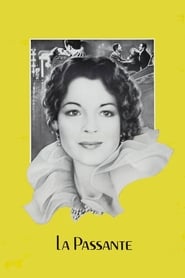 Max Baumstein is a reputable businessman...
Max Baumstein is a reputable businessman...The Passerby 1982
Max Baumstein is a reputable businessman who founded an international organization fighting against violations of human rights. Why would he commit an act that apparently negates the principles he has striven for so long to uphold? As he is tried for first-degree murder for killing a Paraguayan ambassador in cold blood, he reveals a secret about himself that he kept hidden from his wife Lina. His act is the conclusion of a struggle that started many decades earlier in his childhood...
 Hans Castorp fresh from university and...
Hans Castorp fresh from university and...The Magic Mountain 1982
Hans Castorp, fresh from university and about to become a civil engineer, comes to the Sanatorium Berghof in the Swiss Alps to visit his cousin Joachim, an army officer, who is recovering there from tuberculosis. Intending to remain at the Berghof for three weeks, Hans is gradually contaminated by the morbid atmosphere pervading the place. Wishing very much to be considered a patient like the others, he achieves his ends and stays in the sanatorium for ...seven years. During this time, he has enough time to take part in the furious philosophical debates pitting against each other Settembrini, a secular humanist, and Naphta, a totalitarian Jesuit. And to fall in love with the beautiful but enigmatic Clawdia Chauchat. When he is finally discharged in 1914 - along with all the other patients - it is only to plunge into the horrors of World War I.
 Two life stories That of Malou...
Two life stories That of Malou...Malou 1981
Two life stories. That of Malou, a French woman, married to a German Jew, a refugee stranded in South America: a picture of the pre-war generation reflected in the unusual destiny of an individual woman. And that of Hannah, an alert, independent, modern woman, seeking after freedom and her own identity, and trying in present-day Berlin to save her shaky marriage.
 Starting in late May 1944 during the...
Starting in late May 1944 during the...Breakthrough 1979
Starting in late May 1944, during the German retreat on the Eastern Front, Captain Stransky (Helmut Griem) orders Sergeant Steiner (Richard Burton) to blow up a railway tunnel to prevent Russian forces from using it. Steiner's platoon fails in its mission by coming up against a Russian tank. Steiner then takes a furlough to Paris just as the Allies launch their invasion of Normandy.
 Germany in Autumn does not have...
Germany in Autumn does not have...Germany in Autumn 1978
Germany in Autumn does not have a plot per se; it mixes documentary footage, along with standard movie scenes, to give the audience the mood of Germany during the late 1970s. The movie covers the two month time period during 1977 when a businessman was kidnapped, and later murdered, by the left-wing terrorists known as the RAF-Rote Armee Fraktion (Red Army Fraction). The businessman had been kidnapped in an effort to secure the release of the orginal leaders of the RAF, also known as the Baader-Meinhof gang. When the kidnapping effort and a plane hijacking effort failed, the three most prominent leaders of the RAF, Andreas Baader, Gudrun Ensslin, and Jan-Carl Raspe, all committed suicide in prison. It has become an article of faith within the left-wing community that these three were actually murdered by the state.
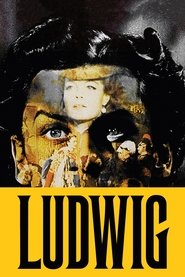 Historical evocation of Ludwig king of...
Historical evocation of Ludwig king of...Ludwig 1973
Historical evocation of Ludwig, king of Bavaria, from his crowning in 1864 until his death in 1886, as a romantic hero. Fan of Richard Wagner, betrayed by him, in love with his cousin Elisabeth of Austria, abandoned by her, tormented by his homosexuality, he will little by little slip towards madness.
 Inside the Kit Kat Club of 1931...
Inside the Kit Kat Club of 1931...Cabaret 1972
Inside the Kit Kat Club of 1931 Berlin, starry-eyed singer Sally Bowles and an impish emcee sound the clarion call to decadent fun, while outside a certain political party grows into a brutal force.

 The rich Westerner embarks on a...
The rich Westerner embarks on a... Follows the life of the famous...
Follows the life of the famous... A historical recreation of the 1944 attempt...
A historical recreation of the 1944 attempt... After the end of Word War...
After the end of Word War... On a trip across Western Europe...
On a trip across Western Europe...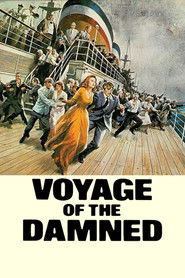 A luxury liner carries Jewish refugees...
A luxury liner carries Jewish refugees... Lieutenant Giovanni Drogo is assigned to...
Lieutenant Giovanni Drogo is assigned to... A German UBoat commander plans a...
A German UBoat commander plans a...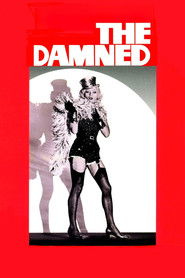 In the early days of Nazi...
In the early days of Nazi...
